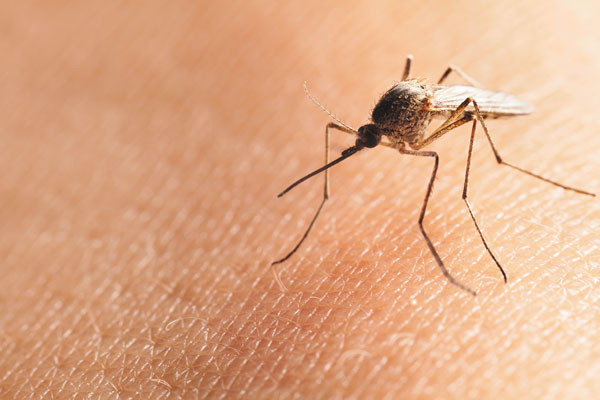
Trying to lose weight? Be careful not to lose muscle

Is your skin problem actually an autoimmune condition?

People with diabetes face higher risk of hearing loss

Antibiotic-free fixes for recurrent UTIs

Musculoskeletal syndrome of menopause: When menopause makes you ache all over

When can older women stop getting mammograms?

To lose weight, especially harmful belly fat, combine diet and exercise

Can men hold off on treating recurring prostate cancer?

The 7 types of rest and why we need them all

What are the early warning signs of cervical cancer?
Vaccinations Archive
Articles
Flu vaccine offers benefits to patients with heart failure
New research found that heart failure patients who had a flu shot had a 30% lower risk of hospitalization for cardiovascular disease, 16% lower risk of hospitalization for respiratory infections, and a 4% lower risk of hospitalization in general.
Are we prepared for epidemics?
Mosquitoes can transmit many viruses, such as, Zika, West Nile, dengue, and yellow fever.
Image: Thinkstock
Ask the Doctor
Q. Why is it that we suddenly have epidemics of things like Zika virus that we've never heard about, and that we have no treatments or vaccines for? It feels like we should be better prepared than we apparently are. This worries me more than terrorism.
Passing your physical exam
The annual check-up is important for older men. Here is how to make the most out of your visit.
Men have a long reputation for avoiding check-ups, and that resistance tends not to soften when they are older.
"Many older men put off exams because they fear finding out something is wrong," says Dr. Suzanne Salamon, a geriatrician with Harvard-affiliated Beth Israel Deaconess Medical Center. "Also, many of today's baby boomers don't think they will have medical problems associated with age, so it can difficult for the 'younger older men,' like those in their 60s and early 70s, to see their doctor."
In the journals: Flu-fighting drugs don't prevent spread to others
If you start taking an antiviral medication after catching the flu, will it keep your family members from catching the bug, too? Maybe not, according to a study in The Journal of Infectious Diseases.
The prescription antivirals oseltamivir (Tamiflu) and zanamivir (Relenza) can cut a case of the flu short by suppressing the virus's overpowering urge to copy itself inside you. Less viral "shedding" by the body could, hypothetically, make it less likely that people who live in the same house will also get sick.
4 vaccinations you may need
Adults need an annual flu shot and a Tdap booster every 10 years. People over 60 need a shingles shot, and those over 65 should have two pneumonia vaccines.
Ask the doctor: High-dose flu vaccine: Is it better?
Ask the doctor
Q. I heard there is a high-dose flu vaccine that could work better in older people. Is it safe even if a man has a medical problem like cancer or heart disease?
A. The high-dose flu vaccine is very similar to the standard flu vaccine but appears to provide slightly better protection against influenza. Both vaccines target three different strains of the flu virus, selected from the most common strains predicted to be circulating that year. The viruses are inactivated, or killed, so they cannot cause the flu, even in people with weakened immune systems. Finally, both vaccines can cause mild symptoms of arm pain, redness, muscle aches, or low-grade fever. Although most people have minimal to no symptoms, the high-dose vaccine may slightly increase the side effects.

Trying to lose weight? Be careful not to lose muscle

Is your skin problem actually an autoimmune condition?

People with diabetes face higher risk of hearing loss

Antibiotic-free fixes for recurrent UTIs

Musculoskeletal syndrome of menopause: When menopause makes you ache all over

When can older women stop getting mammograms?

To lose weight, especially harmful belly fat, combine diet and exercise

Can men hold off on treating recurring prostate cancer?

The 7 types of rest and why we need them all

What are the early warning signs of cervical cancer?
Free Healthbeat Signup
Get the latest in health news delivered to your inbox!
Sign Up










